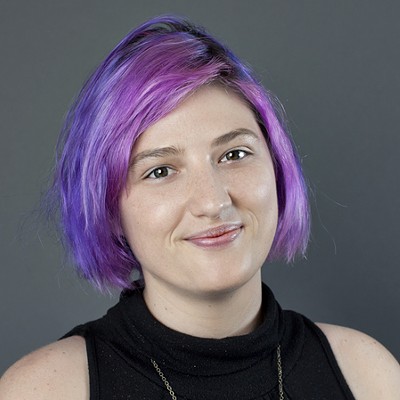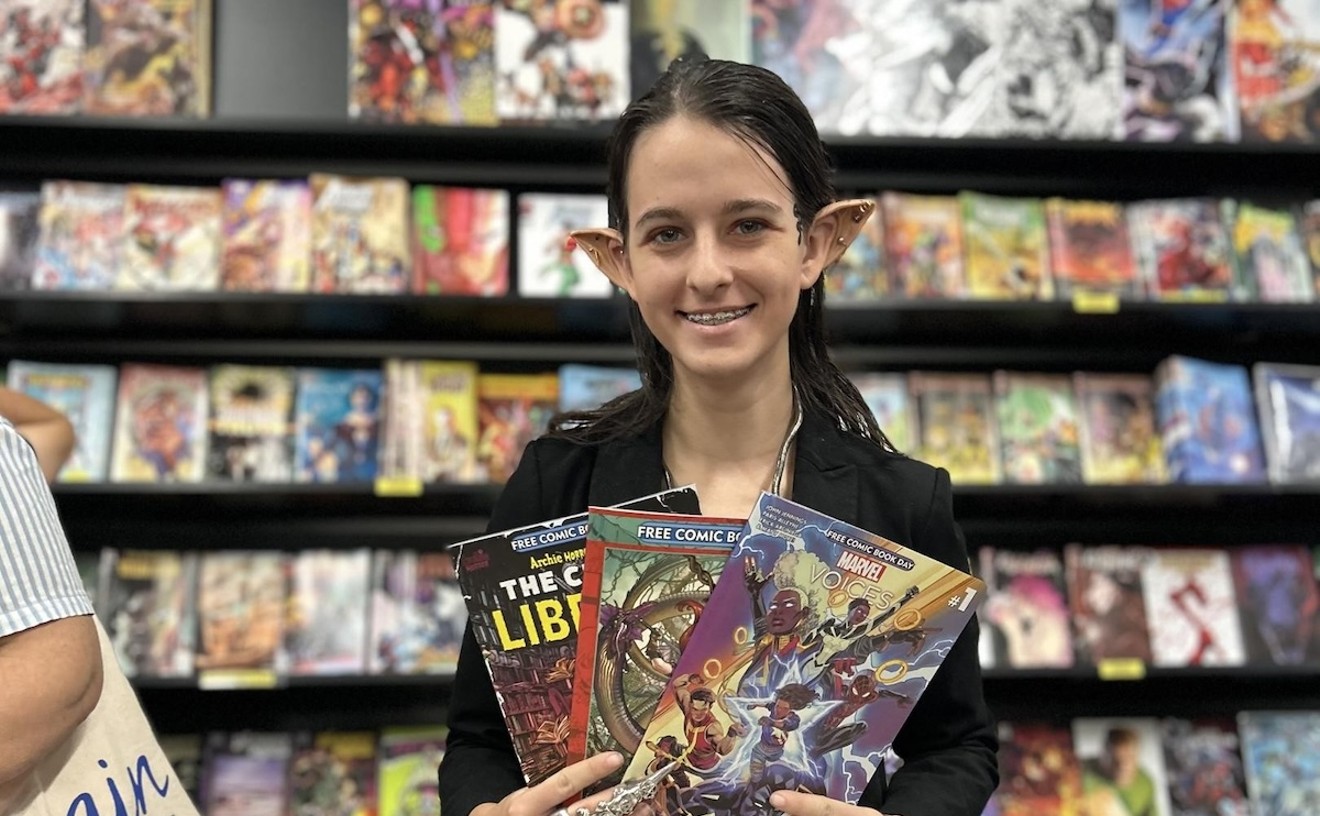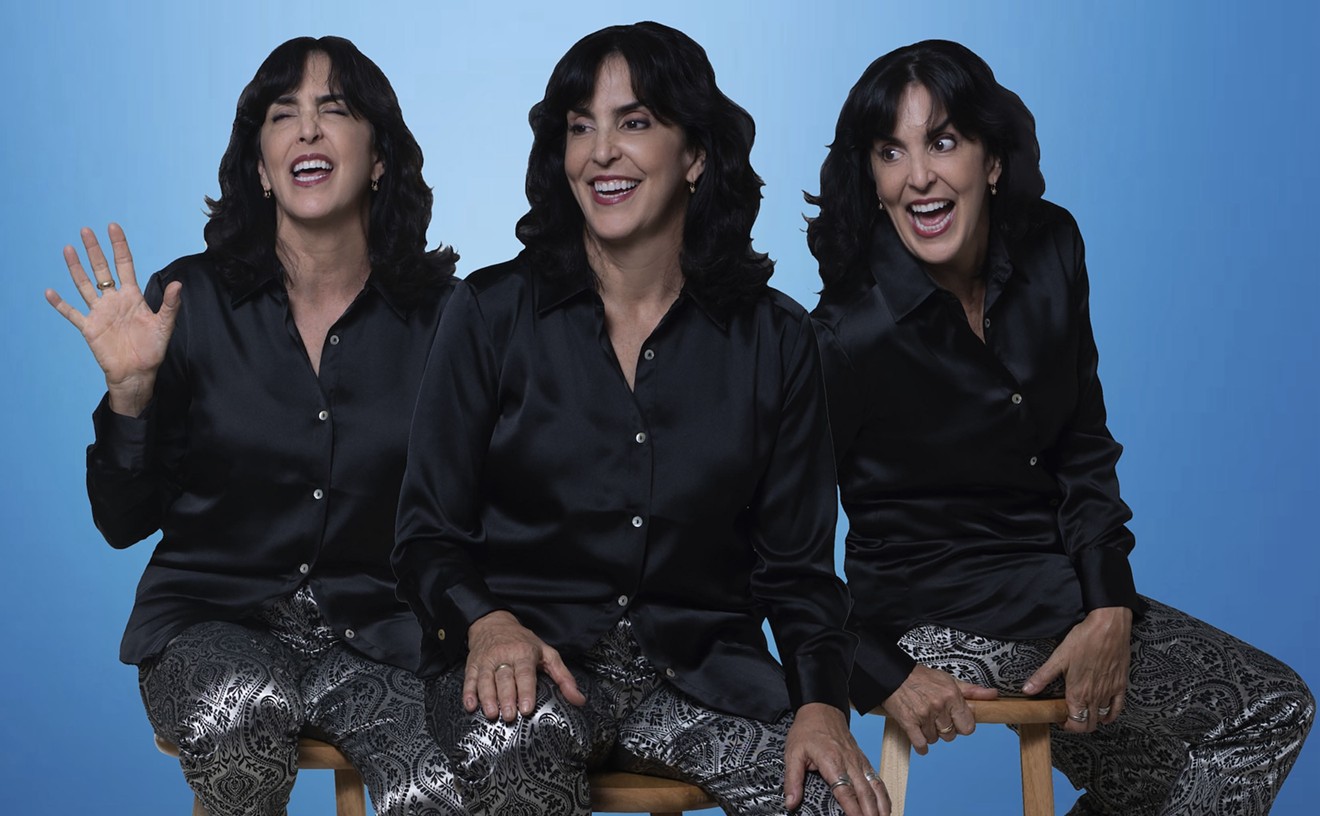Have you ever walked the pale Cuban beaches, stood under the inspiring architecture of its churches, or played stick baseball in the streets?
If you’re one of Miami’s thousands of first-generation Cuban refugees, the answer is “not very likely,” but there are still thousands more parents and grandparents living with the hope that they may one day be able to return to the idealistic land of their childhood.
In reality, this place they haven’t seen in decades still exists, curiously preserved in a way that is nostalgic and yet forlorn. What was once a bustling cultural epicenter in the ‘50s remains in color and construction very much the same. Those ‘50s-era cars are still running through the dusty streets, but that’s because they don’t have other cars to drive. Give a country nearly 60 years of solitude, and things get dangerously stale.
“I’ve been to South Africa and places that are third world, but this really hit home,” says Andres Rivera, a local artist and filmmaker who, together with his friend Julian Yuri Rodriguez, traveled to the island nation with a curious, 360-degree rig of GoPros unlike anything Cubans had ever seen. “It was a very humbling experience coming from here in Miami. We have cars and Internet and cellphones, and they have that too, but we have all this at our fingertips. Then, you go to Cuba, and it’s completely disconnected. It was a bit of a culture shock.”
Imagine this strange pair — with wild beards, tropical shirts, American swagger, tattoos — wandering the roads and towing an even more bizarre technological contraption. Rodriguez and Rivera would roll up to a spot, set it up, and leave the orb, covered in red blinking lights, alone on a tripod in the middle of the action.
They were trying to capture the essence of Cuba as so many remember from so many years ago. Specifically, they were visiting and filming in complete 360-degree, three-dimensional video the very places Rodriguez’ grandmother remembered most from her girlhood. It was all very calculated and even more emotionally charged and culturally important than they could ever imagine.
“We thought it was just cool to make a virtual reality film,” Rivera says, “but once we had the beta version going and started showing friends and family members, seeing their reactions, we started to realize how impactful this video could be.”
Paisajes De Mi Abuela is a short film comprised of five scenes running between six and seven minutes. Viewed through the help of an Oculus Rift virtual reality headset, the film is scored only by the reminiscent remarks of Rodriguez’s abuela as she describes in hauntingly accurate detail the landscapes of her past.
It wasn’t Rivera’s first time to Cuba. He’d been a few months earlier and came back bugging Rodriguez to join him, toying with the idea that the two should film something and take advantage of the opportunity.
“It has production value,” Rivera says. “Not everyone shoots in Cuba.”
They toyed with ideas until Rodriguez called Rivera late one night all excited and pumped. He would interview his grandma about the places she remembered most, and the friends would bring a camera and shoot it. Rodriguez would direct, and Rivera would handle the shooting and editing.
Things became even more complex when they decided to capture the scenes in virtual reality. Rivera spent the next month teaching himself how to create, shoot, and edit such film from Google links and YouTube videos. He never even had time for a trial run. That first shot in Cuba was literally Rivera’s first shot.
“We had no idea what we were going to do or how we were going to get the cameras over there,” he says. “We were nervous. We walked through security and everything was coo, but walk a few more steps, and they started questioning — but they’re not questioning us about the cameras. They’re questioning us because they thing we’re trafficking drugs.”
Security brought out the dogs and searched all through their bags. They ran field tests on the guys, but the only thing they were transporting were seven GoPros stuck together in a ball, and no one seemed to think twice about that.
Filming was an adventure. Passersby stopped and gawked at the device. Some people laughed, some people were visibly freaked out, but nothing compares to the reaction they’ve received since debuting the final product at the Borscht Film Festival in late 2014, coincidentally on the very same day President Obama announced he’d be ending the American-Cuban embargo.
“We joked that we got Obama to loosen up,” Rivera says.
That night, the line to watch the film was so long, not everyone got a chance to see. They began taking down names and numbers, bringing the film door to door, making sure everyone has the chance to see the place their elders once lived, the place they most like will never see again.
“We’re going on a Spanish old lady tours,” Rivera jokes. “They’ve never been back to Cuba, but we’re taking Cuba to them, and with this futuristic unit that they have no idea what it is.”
It’s been an incredible journey for the friends, their families, and their communities, but the project of Paisajes De Mi Abuela still isn’t over. Rodriguez and Rivera now turn their attention to a documentary about their trip, the process, and the impact the film has had on viewers. They’re putting the finishing touches on a downloadable version of Paisajes De Mi Abuela so others with VR headsets can be transported as well.
Looking into the future, they begin to wonder how else this technological process can be applied, maybe in the field of music videos where Rivera has made a directorial name as Wild Young Panda, or maybe in experimental narrative, as Rodriguez has been known to do.
“Once you’re an artist, you’re always going to do something artistic,” Rivera says. “(This technology) is going to be everywhere, and we’re just happy to be one of the first people in Miami to do something. People are taking this to the next level already, and we’re going to do the same.”
[
{
"name": "Air - MediumRectangle - Inline Content - Mobile Display Size",
"component": "19274298",
"insertPoint": "2",
"requiredCountToDisplay": "2"
},{
"name": "Editor Picks",
"component": "17482312",
"insertPoint": "4",
"requiredCountToDisplay": "1"
},{
"name": "Inline Links",
"component": "18711090",
"insertPoint": "8th",
"startingPoint": 8,
"requiredCountToDisplay": "7",
"maxInsertions": 25
},{
"name": "Air - MediumRectangle - Combo - Inline Content",
"component": "17482310",
"insertPoint": "8th",
"startingPoint": 8,
"requiredCountToDisplay": "7",
"maxInsertions": 25
},{
"name": "Inline Links",
"component": "18711090",
"insertPoint": "8th",
"startingPoint": 12,
"requiredCountToDisplay": "11",
"maxInsertions": 25
},{
"name": "Air - Leaderboard Tower - Combo - Inline Content",
"component": "17482313",
"insertPoint": "8th",
"startingPoint": 12,
"requiredCountToDisplay": "11",
"maxInsertions": 25
}
]











